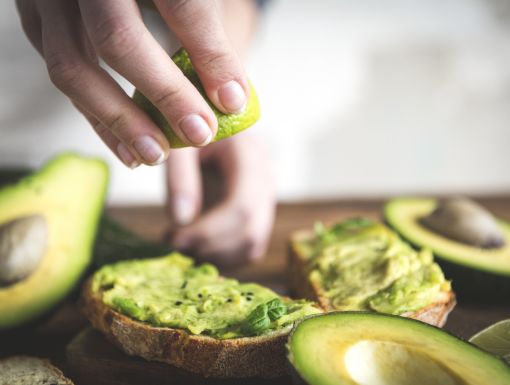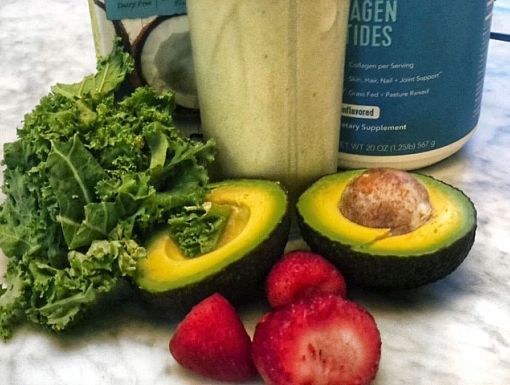
Avocados Can Lower Heart Attack Risk
Overall, the combination of beneficial fatty acids, fiber, vitamins, minerals, and phytochemicals in avocados make them an excellent food for promoting heart health and reducing the risk of heart attack. Incorporating avocados into your diet on a regular basis can help to protect against heart disease and improve overall health.
Avocados and heart disease
Avocados are not only delicious, but they also have health benefits when consumed in moderation. A fruit native to Mexico, most avocados produced in the United States come from California. In 2020, the United States produced 206,610 tons of avocados. Avocados are a good source of healthy fat and are filled with rich nutrients, vitamins and minerals.
You may be surprised to hear eating one serving of avocado a week can lower the risk of heart disease. A study published in the Journal of the American Heart Association noted those who ate avocado regularly, substituting the fruit for foods with high fats like butter and cheese, had a lower risk of heart disease than those who rarely ate avocado in their diet.
According to the Centers for Disease Control and Prevention (CDC), heart disease is the leading cause of death in the United States. One person dies every 34 seconds from cardiovascular disease, and someone has a heart attack every 40 seconds in the United States. With heart disease, plaque builds up in the arteries causing the arteries to narrow, restricting blood flow and leading to a blood clot and heart attack.
Risk factors for heart disease include:
- High blood pressure
- High cholesterol
- Smoking
- Diabetes
- Overweight and obesity
- Unhealthy diet
- Physical inactivity
- Excessive alcohol use
The American Heart Association sites 80% of cardiovascular disease as preventable, including heart disease and stroke. Maintaining a healthy lifestyle is the key prevention. A healthy lifestyle entails controlling your weight, blood pressure and cholesterol while avoiding tobacco use and limiting alcohol intake. Sleep, regular exercise and a healthy diet low in sugar, processed foods and saturated fats are all hallmarks of a healthy lifestyle.
Fat and cholesterol
When it comes to fats in our diet, we are often told to stay away from fat while at the same time told that the body needs fat to boost energy, protect organs and produce hormones. There is a simple explanation for this: Some fats are good, and some are bad.
Saturated and trans fats are considered bad fats and are commonly found in butter, full-fat dairy products, eggs, coconut, palm oils and fatty cuts of meat, including beef, pork and poultry with the skin on. Saturated and trans fats are known to raise bad cholesterol levels, also known as low-destiny lipoprotein (LDL) cholesterol. Cholesterol is a waxy-like substance, similar to fat, found in the body. High cholesterol increases the risk of heart attack or stroke by building up in the walls of your blood vessels and arteries.
Another type of trans fat is artificially made trans fats called hydrogenated oils, which also increase LDL cholesterol levels. Fried foods and baked goods contain hydrogenated oils. Avoid doughnuts, cakes, pie, crusts, biscuits, frozen pizza, cookies, crackers and margarine.
High-density lipoprotein (HDL) cholesterol is commonly referred to as good cholesterol as it can protect against a heart attack or stroke. According to the American Heart Association, healthy HDL cholesterol levels help keep LDL cholesterol away from the arteries by bringing it back to the liver, where LDL cholesterol is broken down and passed from the body. Having high levels of LDL cholesterol with low levels of HDL cholesterol puts you at risk for a heart attack or stroke and type 2 diabetes.
Benefits of avocados
It has been said that avocados are one of the most nutrient-dense foods and are often referred to as a superfood. Avocados contain folate (vitamin B9), potassium, magnesium, vitamin C, vitamin E, vitamin K, vitamin B6, riboflavin, niacin, pantothenic acid, lutein, beta carotene, omega-3 fatty acids and phytochemicals. Nutrients, minerals, oleic acid and fiber are essential to a heart-healthy diet and are all found in avocados.
Unlike saturated fats and trans fats, monounsaturated fats are considered good fat because they help reduce LDL cholesterol levels. Monounsaturated fats also provide nutrients to help develop and maintain cells in the body. They are in olive oil, peanut oil, canola oil, peanut oil, safflower oil, sesame oil, avocados, almonds, hazelnut, pecans, pumpkin seeds and sesame seeds. Half an avocado contains 6.5 grams of oleic acid, a monounsaturated fat. By replacing foods with high saturated fats like butter and cheese with avocado, you can lower your LDL cholesterol, helping to prevent heart disease.
The monounsaturated fatty acids in avocados can help to reduce the levels of low-density lipoprotein (LDL), or "bad" cholesterol, in the blood. High levels of LDL can increase the risk of heart attack and stroke. By lowering LDL levels, avocados can help to protect against these conditions.
Avocados are also a good source of vitamins C and E, which are antioxidants that can help to protect against heart disease. The potassium in avocados can also help to lower blood pressure, which is another important factor in reducing the risk of heart attack. High blood pressure puts extra strain on the heart and can increase the risk of heart attack and stroke.
Complementing their heart-healthy nutrients, avocados also contain phytochemicals, which are plant compounds that have been shown to have protective effects against heart disease. These phytochemicals can help to reduce inflammation in the body, which is a key factor in the development of heart disease.
In addition to their beneficial fatty acids, avocados are also packed with other important nutrients that can help to promote heart health. They are high in fiber, which can help to lower cholesterol levels and improve digestion.Half an avocado which is the suggested serving contains about 20% of the recommended daily fiber. Fiber is known to lower cholesterol and blood pressure because food with fiber is usually low in fat, saturated fatty acids and cholesterol. Additionally, fiber helps you to lose weight because it keeps you feeling full, thereby eating less. In addition, avocados are low in calories. Combine a healthy diet with healthy habits, including regular physical activity; heart disease may be preventable.
Avocado recipes from Ochsner Health
Avocado Cilantro Chicken Salad
Schedule an appointment and learn more about Dr. Salima Qamruddin.



